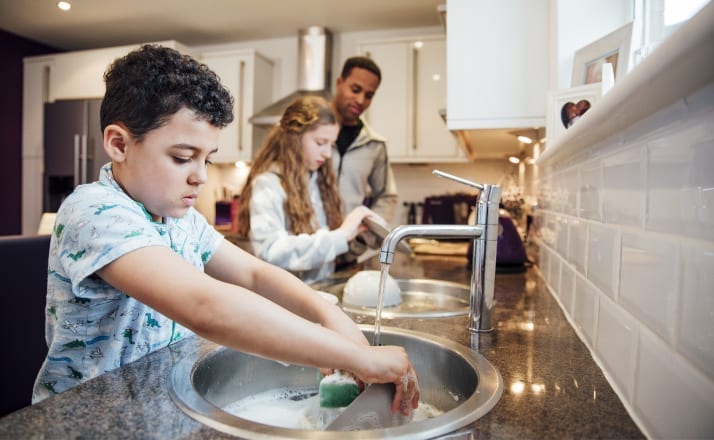“That’s a really cool ball,” my six-year-old told his brother. It was a sincere compliment, entirely without jealousy that he had not also received an awesome new Raptors basketball.
It wasn’t my eleven-year-old’s birthday. There was no occasion that would warrant a gift. My oldest son had simply been enjoying spending time watching the NBA playoffs with his father, and was an avid basketball player, so we decided to surprise him with this unexpected gift.
We didn’t even up this gift with our six-year-old. We didn’t buy him his own ball, or search for something equivalent to get for him. And this didn’t upset him in the slightest. Why? Because the roles have been reversed many times over.
In our house, aside from expected gifts on holidays, we don’t do nice things for each other out of obligation but out of inspiration.
If we see something that screams the name of a member of the family, and we have the means to do so, we might pick it up for them, and only them, in much the same way if you were at Target and saw the most adorable teapot you might pick it up for your friend Sue who collects teapots without then buying gifts for the rest of your friends.
This approach isn’t always about material items – in fact, those little things we pick up are rare treats.
Sometimes this “inequality” comes in the form of activities, outings, or time spent together.
My oldest son gets to stay up later at night. He gets to watch wrestling with his dad, and scary shows with me. My youngest son completely gets it and never complains about, “Why does he get to do that but not me?” There is a five year age gap between them and he understands that he is too little for some things that he will get to do when he is older too.
On the flip side, my six-year-old climbs into bed with me every single night. We listen to a bedtime story podcast together, and I stay with him until he falls asleep, then I transfer him to his own bed.
Often he will come back to my bed during the night and cuddle in til morning. This is time reserved just for him, and my oldest son understands that too.

Then there is the issue of responsibilities. My oldest son has lots of them. Tons. Far more than my youngest.
We expect more from him in terms of accountability, helping out around the house, and general behaviour. Sometimes it seems like our youngest gets away with so much more shit than our oldest. But the other side of that coin is the freedom granted to my oldest, while my youngest is within arms reach at almost all times.
We do not play favorites. We are keenly aware and invested in making sure that overall, our children are treated equally.
At Christmas, I quite literally count all of their gifts to make sure the number on each side is identical. We do frequent mental checks to make sure that though the distribution of favour might be sporadic, it is balanced.
We want our children to know we see them as individuals and treat them accordingly. We want them to know that whether it is a basketball we saw we knew they would love, a responsibility we knew they could handle, or an expectation for them alone, we gave it to them because we really know them, not because we felt obligated to.
We hope this different but equal approach helps foster an equity versus equality understanding in our children.
We don’t want our kids to think that everyone should be given the same things across the board (the definition of equality), but rather to fight for equity, in which everyone receives what they need in order to level the playing field.
Equity brings true overall equality, and we are showing them that in practice each time their brother receives something they do not, but they see how it results in fair treatment overall.
It’s difficult to explain a complex subject like equity versus equality when we are used to the, “If they got it, I deserve it too” mindset, without understanding the reasoning behind why the other party got it.
We want them to know the difference between entitlement and truly being entitled to something. We want them to insist on fair treatment for themselves and for others – but we want them to really understand what fair looks like, and that sometimes to be truly fair overall, things can look unbalanced close-up in snapshots of moments or actions.
When one child’s shoes wear out, they do not both get new shoes – but neither of them is ever without adequate footwear.
We would never be unfair to our children.
We would not go to Dairy Queen as a family and buy only one of them an ice cream. But we will continue to meet their individual needs. We will continue to practice equity. And we hope that when the time comes, they will be able to apply it broadly to make the world better for everyone.











